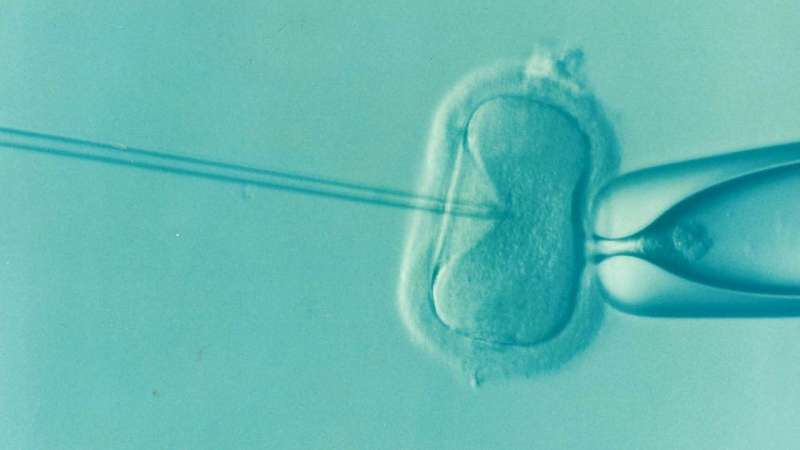
A randomized managed trial checked out in-vitro fertilization (IVF) outcomes within the UK and Hong Kong. The outcomes, revealed in The Lancet, present much-needed proof that utilizing time-lapse imaging (TLI) doesn’t enhance therapy outcomes for somebody present process fertility therapy.
Time-lapse imaging is a method utilized in IVF that takes hundreds of time-lapse pictures of embryos as they develop, making a steady view of every embryo because it develops. Some fertility practitioners provide TLI as a pre-implantation screening approach and consider that data that TLI offers—comparable to fee of growth or the quantity and look of cells—might help to pick out the very best embryos for implantation.
In TLI, the embryos should not faraway from their incubators, thereby minimizing the fluctuations in temperature, humidity, pH, and fuel concentrations that may have an effect on growth. Customary methods to evaluate and choose the embryos with the very best implantation potential require the embryo to be faraway from incubators.
The double-blind trial, led by Dr. Priya Bhide from the Ladies’s Well being Analysis Unit at Queen Mary College of London, recruited over 1,500 individuals present process IVF at seven facilities in the UK and Hong Kong.
The individuals had been randomly assigned to one in all three trial arms: one group of individuals obtained TLI-based embryo choice, one group obtained the usual static evaluation utilizing undisturbed tradition, and the third obtained standard evaluation utilizing mild microscope and customary embryo tradition in customary incubators. Baseline demographic and scientific traits of individuals had been comparable within the three arms.
Stay beginning charges for embryos from every arm of the research had been 33.7% within the TLI arm, 36.6% within the undisturbed tradition arm and 33.0% within the management arm. The scientific being pregnant charges had been 42.2% within the TLI arm, 43.4% within the undisturbed tradition arm, and 40.9% within the management arm. Not one of the different secondary outcomes for scientific effectiveness and security demonstrated important variations between the arms.
Dr. Priya Bhide, Medical Reader on the Ladies’s Well being Analysis Unit, Middle for Public Well being and Coverage within the Wolfson Institute of Inhabitants Well being, mentioned, “Our trial means that TLI doesn’t enhance the percentages of reside beginning in ladies having IVF and ICSI therapies. This reveals that the theoretical advantages of superior expertise don’t all the time translate into improved scientific outcomes. That is essential data for all stakeholders; sufferers, well being care professionals, funders and policymakers.”
Dr. David Chan, lab director on the Prince of Wales Hospital, The Chinese language College of Hong Kong, mentioned, “Our trial offers proof to assist that TLI machines is probably not important tools within the IVF lab, particularly for IVF laboratories with restricted sources. Laboratories might use the findings from this research to re-evaluate how they allocate their funds for tools.
“As a substitute of investing closely within the TLI machine, they may focus extra on lab tools that has a direct, measurable influence on reside beginning charges. This method may assist strike a greater steadiness between the general value of IVF therapies and affected person affordability in resource-limited settings.”
One in six adults are affected by subfertility worldwide. Statistics from the Human Fertilization and Embryology Authority (HFEA) present over 100,000 IVF therapies occurred within the UK throughout 2022–23.
Extra data:
Medical effectiveness and security of time-lapse imaging techniques for embryo incubation and choice in in-vitro fertilisation therapy (Time-lapse imaging trial, TILT) – a multicentre, three-arm, parallel-group, double-blind randomised managed trial, The Lancet (2024). DOI: 10.1016/S0140-6736(24)00816-X
Quotation:
Time-lapse imaging for embryo choice in IVF doesn’t enhance the percentages of reside beginning, massive research finds (2024, July 18)
retrieved 18 July 2024
from https://medicalxpress.com/information/2024-07-lapse-imaging-embryo-ivf-odds.html
This doc is topic to copyright. Aside from any honest dealing for the aim of personal research or analysis, no
half could also be reproduced with out the written permission. The content material is supplied for data functions solely.
